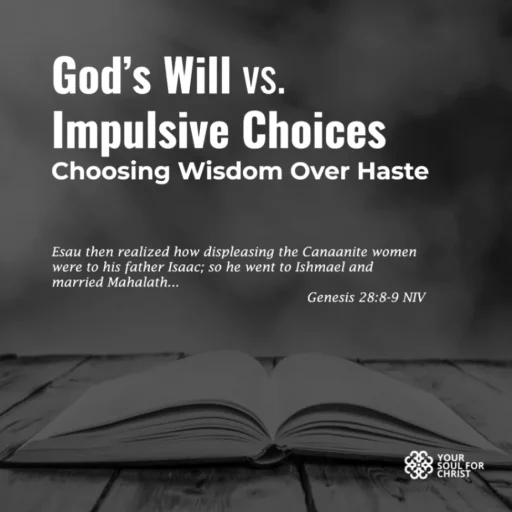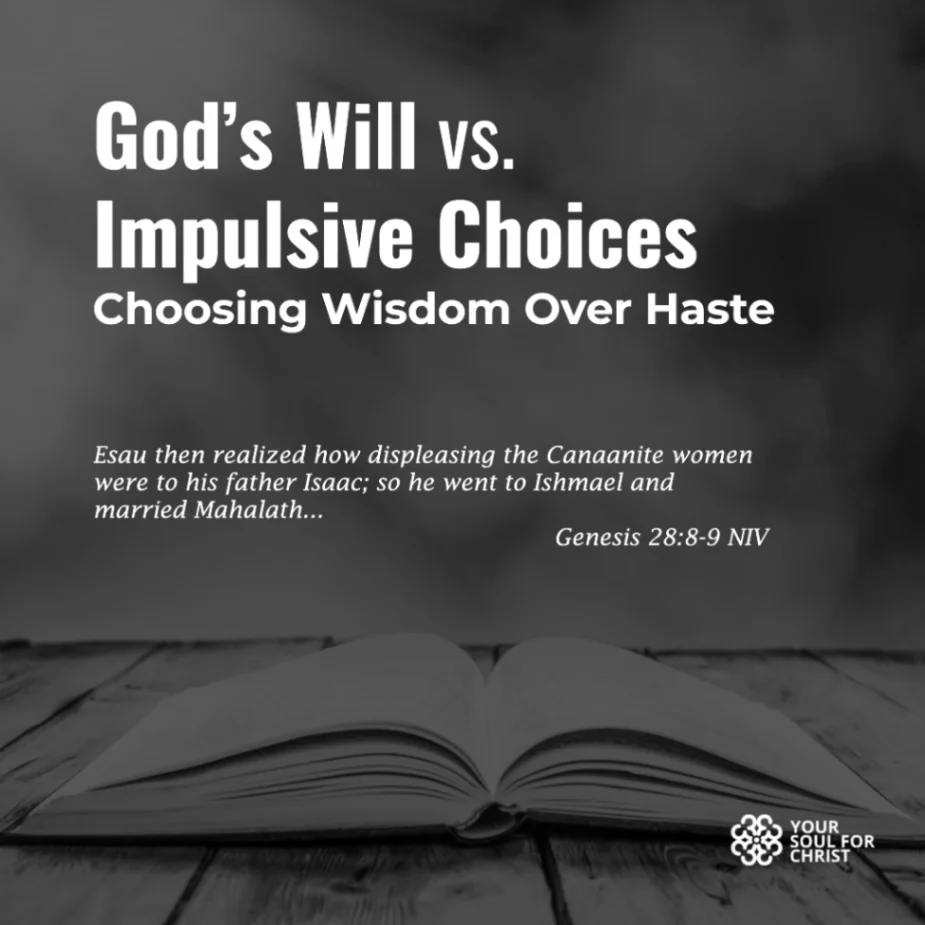Esau then realized how displeasing the Canaanite women were to his father Isaac; so he went to Ishmael and married Mahalath, the sister of Nebaioth and daughter of Ishmael son of Abraham, in addition to the wives he already had.
Genesis 28:8-9 NIV
Esau’s story in Genesis 28:8-9 reads like a cautionary tale for every believer. After discovering his Canaanite wives displeased his father Isaac, Esau rushed to “fix” his mistake by marrying Mahalath, a daughter of Ishmael. Yet this decision only deepened his missteps. His story teaches us a sobering truth: good intentions are not enough when they bypass God’s will.
Esau’s marriages reveal a heart prone to acting first and seeking counsel later. Earlier, he had married two Hittite women, “a source of grief to Isaac and Rebekah” (Genesis 26:35). Now, instead of humbly asking his parents or God for guidance, he assumed marrying into Ishmael’s line—Abraham’s descendants through Hagar—would please Isaac. But Ishmael’s lineage, though related by blood, stood outside God’s covenant promise (Genesis 17:19-21). Esau’s haste highlights a recurring flaw: he prioritised quick fixes over divine wisdom.
Like many of us, Esau confused activity for obedience. His choice to marry Mahalath was well-intentioned but spiritually misguided. How often do we, too, lean on our own understanding (Proverbs 3:5-6), patching errors with human solutions rather than seeking God’s redirection?
The Cost of Ignoring God’s Will
Esau’s story underscores a vital lesson: knowing God’s will requires intentional pursuit. Isaac had clearly instructed Jacob to marry within Laban’s household (Genesis 28:2), yet Esau remained unaware of these expectations. His ignorance wasn’t accidental—it reflected a lifelong pattern of neglecting spiritual discernment.
This disconnect carries consequences. By marrying outside the covenant line, Esau forfeited his role in God’s redemptive plan. His choices not only grieved his parents but alienated him from the blessings reserved for Jacob’s lineage. As believers, we’re called to higher stewardship: “Do not conform to the pattern of this world, but be transformed by the renewing of your mind. Then you will be able to test and approve what God’s will is” (Romans 12:2).
Lessons for Modern Believers
- Seek First, Act Second
Esau’s impulsive marriages teach us to pause and pray. James 1:5 reminds us, “If any of you lacks wisdom, you should ask God, who gives generously to all.” Before major decisions—relationships, careers, or ministries—ask: “Does this align with God’s Will for me? Have I sought His confirmation?” - Embrace Humility in Correction
When we err, our first response should be repentance, not self-reliance. Esau tried to “correct” his mistake independently, compounding his error. God’s grace meets us in humility, not hustle. - Anchor in Covenant Promises
Esau’s marriages failed because he valued ancestry over covenant. For believers, Christ’s covenant is our compass (Hebrews 8:6). Every choice should reflect His Lordship, not cultural or familial convenience.
Esau’s life need not be a warning alone—it can also point us to hope. Even when we misstep, God’s will remains our rescue. The psalmist assures, “The Lord makes firm the steps of the one who delights in Him” (Psalm 37:23). Our call isn’t immediate perfection but persistence in seeking Him.
Are there areas where you’ve acted impulsively, like Esau? How might you invite God’s wisdom into your next decision?
May we, unlike Esau, choose the slower, surer path: kneeling in prayer before stepping into action. For in surrender, we find the wisdom to walk rightly.

